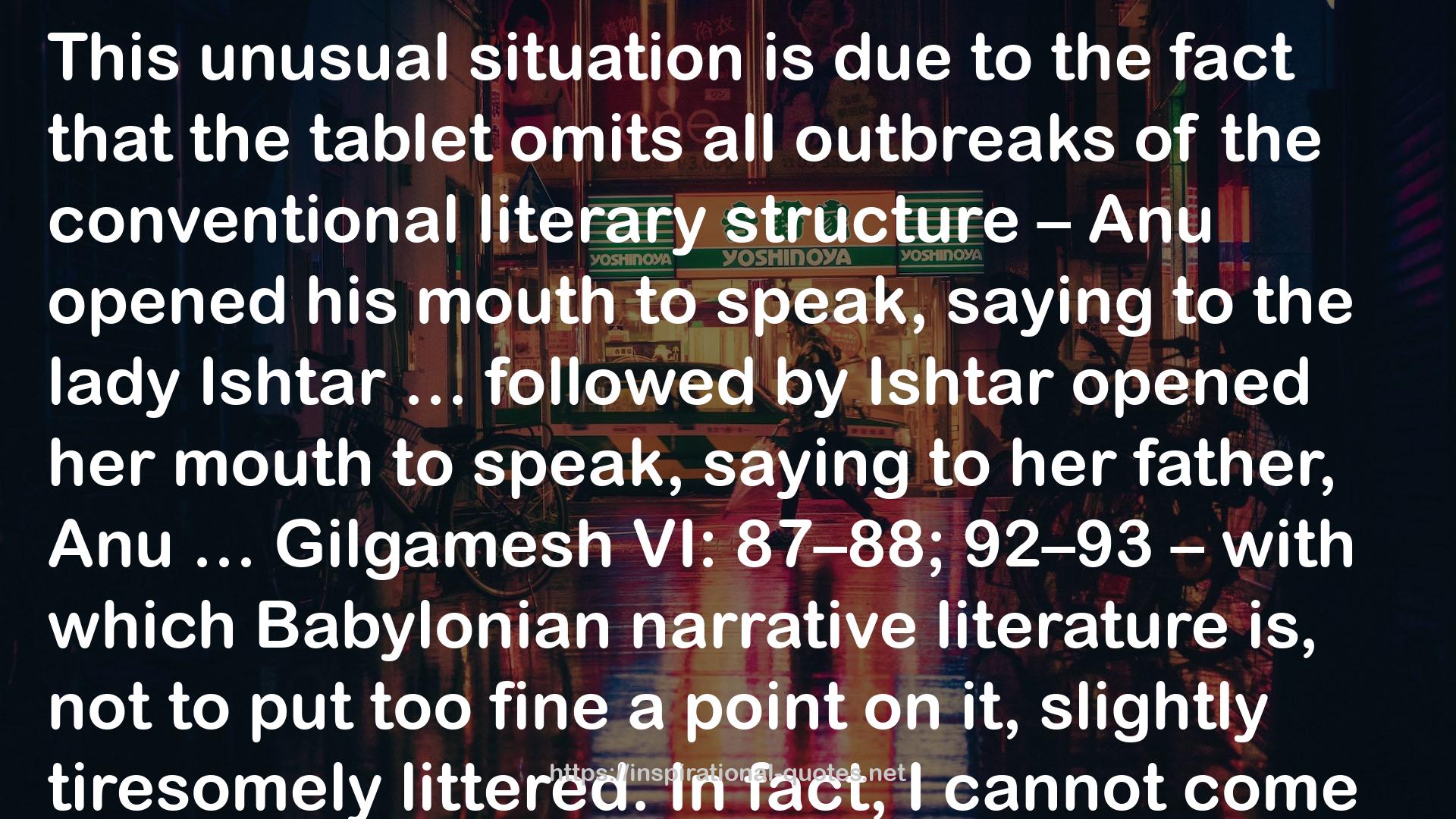" This unusual situation is due to the fact that the tablet omits all outbreaks of the conventional literary structure – Anu opened his mouth to speak, saying to the lady Ishtar … followed by Ishtar opened her mouth to speak, saying to her father, Anu … Gilgamesh VI: 87–88; 92–93 – with which Babylonian narrative literature is, not to put too fine a point on it, slightly tiresomely littered. In fact, I cannot come up with another example of Babylonian mythological or epic literature that is devoid of this characteristic speech-linking device. Its repetitive nature at first sight looks like a remnant of oral literature, where things are repeated more than we would repeat them today, which the modern connoisseur of cuneiform literature just has to accept, or appreciate as atmospheric and authentic. On reflection, however, it is just the opposite. The characteristic dependence on this formula originates in the very transition from oral to written literature, for who is speaking at any one time will always be clear in a storyteller’s presentation, but the process of writing down what has previously been spoken aloud creates ambiguity for the reader unless each speaker is clearly identified. "
― Irving Finkel , The Ark Before Noah: Decoding the Story of the Flood
